~ an excerpt~
My mother was the only child of a couple who, unlike the parents of my father, were city people. My grandfather was a decorated colonel in the Turkish Army and fought in the Turkish War of Independence alongside Mustafa Kemal Atatürk to free Turkey as a nation from the weakened and corrupt Ottoman Empire which, by then, was ready to parcel out the country to England, France, Italy and Greece. He endured weeks of hunger, malnutrition, malaria, dysentery , and sustained 18 wounds as I heard from my grandmother and mother in conversations. By the time I and my sisters were born and old enough to be cognizant of history and our grandfather’s part in it, the former was already in his very late seventies.
My most poignant - and shamefully cruel - recollection of him is one of his dozing of, one hand resting on his cane, seated on a kitchen chair, still wearing his Stetson hat. I, with the prominent naughty nature I possessed all through my life, would line up bottle caps and small sea shells on the rim of his hat and then yell out, "Dédé ! Dédé ! Wake up ! It’s time to go!"
As he jumped up startled and disoriented, the bottle caps rained down on his shoulders, legs, the floor, and I laughed gleefully. But he’d take the horrible joke in good humor, and say, "You, again! My naughty, incorrigible little Firefly! What pleasure do you get from mocking an old man?"
It’s another regrettable fact of my life that I was too unaware of my grandfather, his life and accomplishments while he was alive. He would have been my last connection to an Era- the glorious Ottoman Era of the pre modern Turkish Republic - a window for me to peek through and re-live some first-hand history through him . One of my many losses in life.
Ibrahim Ethem Demirhan and his wife, Hayriye Nezihe, my maternal grandparents lived in a modest home in Eyüp, which was apparently considered the most sought after neighborhood of Istanbul during the Ottoman times, but was neglected since its demise. The house was a two storey wooden structure with lattice trimmed windows, high ceilings and hardwood floors. My recollection of it - not so much as a structure but more as a feeling - is that it was like a gigantic doll house. The floors creaked, there was a room upstairs which my sisters and I were banned from entering (which only flared our curiosity more), there was a huge garden with hundreds of kinds of flowers, a water well with a rusty cover and a bucket attached to a pulley beside it. There was also a chicken coop with chickens, a rooster and a turkey . If we walked all the way to the end of the garden, we’d be stopped by a thick and high stone wall which prevented us from falling off the cliff into the Bosphorus, and marked the end of my grandmother’s property.
The fascinating story I heard from my mother about the origins of that old, wooden is among the most vivid memories from my childhood, probably because of its sounding so far away from the reality in which I lived.
To me her words were like a fairy tale I loved to listen to over and over, not only to let my imagination take off and recreate the characters and the places she talked about, but also to make sure that what she was telling was consistent and true- although I wasn’t conscious of my latter motive at that time.
The old house in Eyüp, Istanbul used to belong to my mother’s grandmother, or my great-grandmother. My mother herself had vague recollections of an old and sickly woman with bed sores on her back and who really did not play any significant role in her life. As a small child, all my mother remembered was images of her own mother, who was a trained mid-wife, attending to her dying mother during the last days of her life as a dutiful daughter.
My mother was the only child of a couple who, unlike the parents of my father, were city people. My grandfather was a decorated colonel in the Turkish Army and fought in the Turkish War of Independence alongside Mustafa Kemal Atatürk to free Turkey as a nation from the weakened and corrupt Ottoman Empire which, by then, was ready to parcel out the country to England, France, Italy and Greece. He endured weeks of hunger, malnutrition, malaria, dysentery , and sustained 18 wounds as I heard from my grandmother and mother in conversations. By the time I and my sisters were born and old enough to be cognizant of history and our grandfather’s part in it, the former was already in his very late seventies.
My most poignant - and shamefully cruel - recollection of him is one of his dozing of, one hand resting on his cane, seated on a kitchen chair, still wearing his Stetson hat. I, with the prominent naughty nature I possessed all through my life, would line up bottle caps and small sea shells on the rim of his hat and then yell out, "Dédé ! Dédé ! Wake up ! It’s time to go!"
As he jumped up startled and disoriented, the bottle caps rained down on his shoulders, legs, the floor, and I laughed gleefully. But he’d take the horrible joke in good humor, and say, "You, again! My naughty, incorrigible little Firefly! What pleasure do you get from mocking an old man?"
It’s another regrettable fact of my life that I was too unaware of my grandfather, his life and accomplishments while he was alive. He would have been my last connection to an Era- the glorious Ottoman Era of the pre modern Turkish Republic - a window for me to peek through and re-live some first-hand history through him . One of my many losses in life.
Ibrahim Ethem Demirhan and his wife, Hayriye Nezihe, my maternal grandparents lived in a modest home in Eyüp, which was apparently considered the most sought after neighborhood of Istanbul during the Ottoman times, but was neglected since its demise. The house was a two storey wooden structure with lattice trimmed windows, high ceilings and hardwood floors. My recollection of it - not so much as a structure but more as a feeling - is that it was like a gigantic doll house. The floors creaked, there was a room upstairs which my sisters and I were banned from entering (which only flared our curiosity more), there was a huge garden with hundreds of kinds of flowers, a water well with a rusty cover and a bucket attached to a pulley beside it. There was also a chicken coop with chickens, a rooster and a turkey . If we walked all the way to the end of the garden, we’d be stopped by a thick and high stone wall which prevented us from falling off the cliff into the Bosphorus, and marked the end of my grandmother’s property.
The fascinating story I heard from my mother about the origins of that old, wooden is among the most vivid memories from my childhood, probably because of its sounding so far away from the reality in which I lived.
To me her words were like a fairy tale I loved to listen to over and over, not only to let my imagination take off and recreate the characters and the places she talked about, but also to make sure that what she was telling was consistent and true- although I wasn’t conscious of my latter motive at that time.
The old house in Eyüp, Istanbul used to belong to my mother’s grandmother, or my great-grandmother. My mother herself had vague recollections of an old and sickly woman with bed sores on her back and who really did not play any significant role in her life. As a small child, all my mother remembered was images of her own mother, who was a trained mid-wife, attending to her dying mother during the last days of her life as a dutiful daughter.
Although her physical presence was insignificant in her life, her great grandmother’s accomplishment and status were very impressive factors on my mother and she never failed to talk about her "anneanne" when she was with friends, or met new people wherever we traveled because of my father’s career.
My great-grandmother was the treasurer of the Harem in Topkapi Palace during the reign of the last Ottoman Sultan. That was a very prestigious and revered position, for one had to be a trusted, forthright, dependable person. She had the keys to the treasury where the Harem jewels made of precious gems - emeralds, rubies, diamonds, gold, platinum, sapphire, topaz were stored and retrieved by official request for the use of the concubines. She had to account for what was in, what was out and make sure not a single piece went missing.
When she left her post to be married and raise a family, the Sultan gave her an exquisite set of emerald earrings and pendant as a "wedding and thank you for your service" gift. Many years later, it was that precious gift that was old and the proceeds from it paid for the house that was inherited by my grandmother. Of course, as my grandparents grew older, so did the house showing signs of wear and tear, creaking with age and aching for attention and care. Just like old people inevitably do, so had the once stately house had lost its dignity and become a burden on my grandparents.
* * * * *
At the end of my first year in elementary school which was spent in Diyarbakir (not too far from Syria and Iraq, on the south eastern part of Turkey), my father had sent his wife and three daughters to Istanbul as a respite from the intense heat of the city and a needed reunion for my mother with her parents.
That summer stands out in my memory with happy snapshots as well as unresolved mysteries. We traveled to Istanbul in a truck that was owned by a Kurdish carpet dealer. I don’t know his connection to my family, but I remember his presence a few times at dinners at our home in Diyarbakir. He was a jolly, large man whom everyone called Hüseyin Aga. He must have been trustworthy for my father to let his young, pretty wife and his three young daughters to travel with him all the way from Diyarbakir to Istanbul in his truck.
At my grandparent’s home my sisters and I felt like we were in paradise. The garden was our sanctuary and we could be anything we wanted to be there. One day we would pick red and pink and orange petals from the Dahlias and lick them to stick over our fingernails to pretend we just came out of the manicurists. Another day we tried making dolls from twigs, attaching snapdragons for heads and dressing them in alternate layers of Asters and Gerber Daisies strung through the twig to resemble full length fashion gowns.
One day, upon hearing that the turkey in the chicken coop was destined for new year’s dinner, I started viewing him as a soldier getting ready to go to battle and made him my fiancee. With my red Dahlia petalled fingers, I’d hold unto the chicken wire and carry monologues with my fiancee, the turkey, declaring to him my unwavering love, promising I’d think of him everyday and urging him to be brave.
Unfortunately, my mother overheard my declarations of love to my first love, a turkey, one evening and the next thing I remember is becoming the subject of the table conversation. I would never hear the end of my secret self engagement to my grandmother’s turkey. I was only seven years old then, and by the time I was seventeen my mother, who -much to my relief had discovered that capon was a lot more tender and juicy- had switched to baking a stuffed capon for new year’s dinners.
We enjoyed a freedom at our grandparents that our mother denied us, whether it was in the way we expressed ourselves, or how much or what we ate, or if we refused the compulsory afternoon naps. In Diyarbakir, because of the intense heat, all businesses closed between noon and 3 pm; and my mother obliged us to take a nap after lunch. Our reward : home-made fruit ice which she had learned to make and prided herself in offering to her guests.
My sisters and I, however, hated sleeping after lunch- if only because it was something we simply couldn’t do.
Instead, we loved drawing pictures. So under our pillows we’d sneak sharpened pencils and straightened wrapping paper with a Walt Disney Golden Book as a hard support. My sisters and I shared the same room and as soon as all was quiet, we’d take out our drawing paraphernalia and start drawing semi stick forms of ladies wearing the latest fashions and high heels with huge bows. Our drawings always had stories to them and the women had names and glamorous careers.
"Okay, now they’re going to a party," I’d whisper. And all of us would start drawing our disproportionate ladies in their latest and most outrageous party attire while our ears were fixed on sound of footsteps that might signal mother’s approaching to check in on us.
Having been so close in age and sharing the same strict, bitter-sweet upbringing has bonded my sisters and me in a very unique way. Many siblings share a close bond among themselves, and I would never maintain that we are the only ones or the most unique ones with such a bond. However, our bond has been put through some very tough tests and at one point it was almost severed. But it survived and revived stronger than before.
I see that as the biggest legacy of my father among the many he left us.
I believe my mother did not enjoy the relaxed discipline her parents bestowed on their granddaughters. But, having seen in raising their own offspring that a little leeway will not lead to any serious and irreversible harm in the youngsters, aren’t most grandparents usually more easy going with their grandchildren? If anything, the love and the generosity of my grandparents made us long for them more and cherish the few times we spent with them in Istanbul, Edirne and Ankara.
My mother was an only child and her parents were blessed with her at a much later age in their lives due to wars and other circumstances that delayed parenthood.. Consequently they doted over her and raised her as if she were a princess - keeping her away from the commoners. She could associate with selected friends- older daughters of military colleagues to whom she looked up and with whom she had little in common. If she resented this, she hid it well for she had learned being submissive at a very early age. So she never acknowledged her resentment, but rather let it germinate to seek revenge later in her life.
In her summer breaks, she would not be seen with her peers playing hop-scotch or hide and seek in the neighborhood. This was something my sisters and I were not allowed to do either during our childhood. Children of the neighborhood were called "sokak çocugu" - street children, and they would teach my mother bad things so she was kept away, protected from them by her overly protective mother.
Instead, my mother, like a kitten, curled up by her mother’s side and learned how to embroider and do petit-point and produced intricate doilies and blouses with embroidered bodices for herself. Such skills were looked upon favorably for a young girl in her circles. Her natural talent in this area led her to pursue an education at the Kiz Sanat Enstitüsü - Girls’ Crafts Institute - an institute of fine couture where she mastered how to make by hand fine lingerie, man’s shirts, silk flowers, women’s hats and baby clothes which came in handy later on in her life. However, pursuing this line of education clashed with her mother’s goals for her to study law and become a judge.
"I never felt I had the patience to read through all the volumes of those law books," I recall her confessing once when I was thirteen and wondering to myself what I should be.
A happy, fulfilled life, according to my mother, comprised of making an enviable marriage, having babies and raising them as the perfect children who’d be the envy of everyone- a testament to her ultimate success in life.Her fair, blonde, blue-eyed looks, proper upbringing and respectable family background would not present any obstacles in securing a desirable marriage and a suitable social station in life. However, her prospective husband had to be approved by her parents. My grandfather, with his connections in the military had the means to investigate the background of any hopeful suitor and decide whether he was worthy of his precious young girl.
I believe my mother did not enjoy the relaxed discipline her parents bestowed on their granddaughters. But, having seen in raising their own offspring that a little leeway will not lead to any serious and irreversible harm in the youngsters, aren’t most grandparents usually more easy going with their grandchildren? If anything, the love and the generosity of my grandparents made us long for them more and cherish the few times we spent with them in Istanbul, Edirne and Ankara.
My mother was an only child and her parents were blessed with her at a much later age in their lives due to wars and other circumstances that delayed parenthood.. Consequently they doted over her and raised her as if she were a princess - keeping her away from the commoners. She could associate with selected friends- older daughters of military colleagues to whom she looked up and with whom she had little in common. If she resented this, she hid it well for she had learned being submissive at a very early age. So she never acknowledged her resentment, but rather let it germinate to seek revenge later in her life.
In her summer breaks, she would not be seen with her peers playing hop-scotch or hide and seek in the neighborhood. This was something my sisters and I were not allowed to do either during our childhood. Children of the neighborhood were called "sokak çocugu" - street children, and they would teach my mother bad things so she was kept away, protected from them by her overly protective mother.
Instead, my mother, like a kitten, curled up by her mother’s side and learned how to embroider and do petit-point and produced intricate doilies and blouses with embroidered bodices for herself. Such skills were looked upon favorably for a young girl in her circles. Her natural talent in this area led her to pursue an education at the Kiz Sanat Enstitüsü - Girls’ Crafts Institute - an institute of fine couture where she mastered how to make by hand fine lingerie, man’s shirts, silk flowers, women’s hats and baby clothes which came in handy later on in her life. However, pursuing this line of education clashed with her mother’s goals for her to study law and become a judge.
"I never felt I had the patience to read through all the volumes of those law books," I recall her confessing once when I was thirteen and wondering to myself what I should be.
A happy, fulfilled life, according to my mother, comprised of making an enviable marriage, having babies and raising them as the perfect children who’d be the envy of everyone- a testament to her ultimate success in life.Her fair, blonde, blue-eyed looks, proper upbringing and respectable family background would not present any obstacles in securing a desirable marriage and a suitable social station in life. However, her prospective husband had to be approved by her parents. My grandfather, with his connections in the military had the means to investigate the background of any hopeful suitor and decide whether he was worthy of his precious young girl.
My mother had many suitors.
On May 23, 1949, she married the most unlikely one. She had just turned twenty, two weeks earlier..
My father had little in common with her in his background, upbringing or family status. According to my mother, he wasn’t even handsome. "But he had a golden bracelet," she would say.
Having a golden bracelet, in my culture, is used as a metaphor for possessing a good, solid education to ensure a gainful employment, a respectable career and a secure future. It doesn’t refer to those whose wives support dozens of 24 karat golden wire bracelets on their arms as a sign of their affluence. Although, in time, my father was able to buy my mother at least half a dozen of such trinkets whose jingle always warned me of her whereabouts, just like the little bell on my cat’s collar lets me know that of his.
But more importantly my father, who had only a mother for a dependent, was the candidate my grandparents believed would make her happy.
My mother agreed.
She selected him over the dashing young medical doctor, who could possibly flirt with nurses and be unfaithful; or the tall, dark architect who had a lenience towards drinking; or the lieutenant; or the wealthy carpet trader.
Even as a young girl, my mother was practical and pragmatic in her choice of a mate and selected the skinny, dark haired, olive complexioned engineer who had just graduated from the Istanbul Technical University, whom she knew would be devoted to her.
Her parents could see a happy future for their daughter with this honest, shy, polite, young man untainted by big city life and gave them both their blessings.
Copyrighted Material ~ Copyright © 20068 ~ All Rights belong to Füsun Atalay

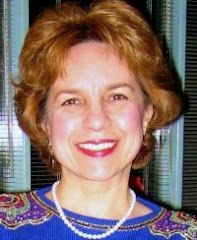




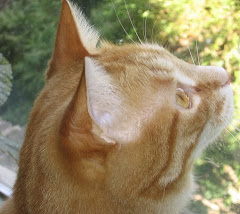


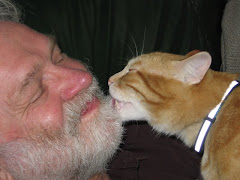

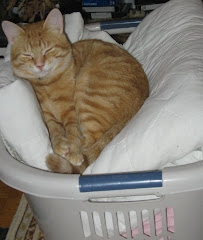





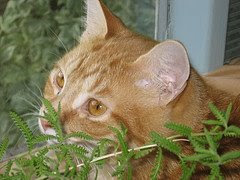

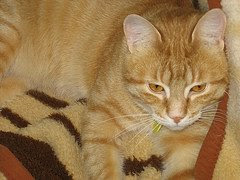

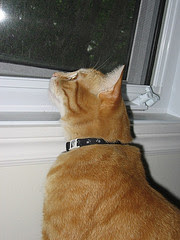
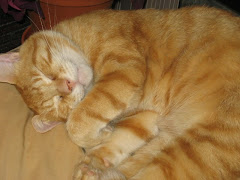
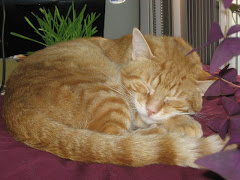
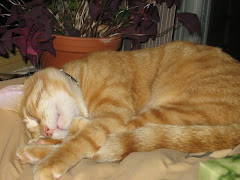


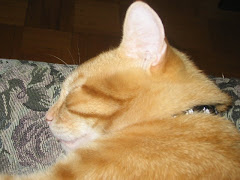



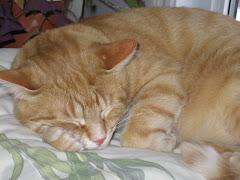


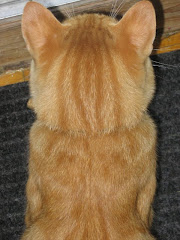
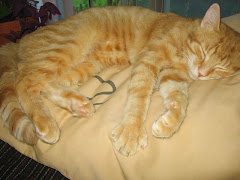
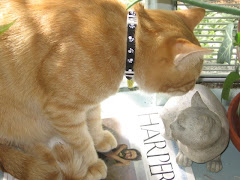

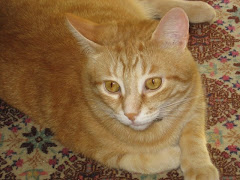


No comments:
Post a Comment